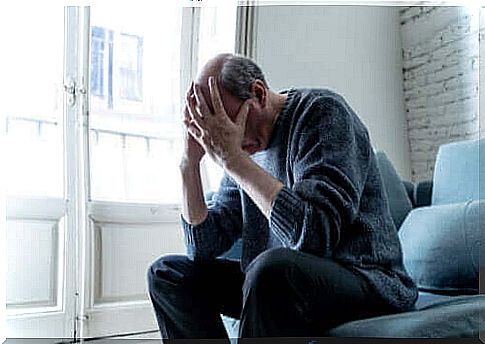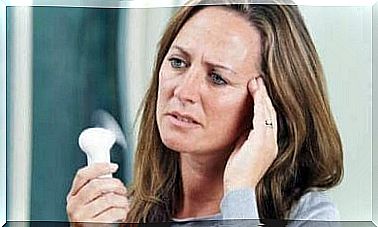What Is Learned Helplessness And Can It Be Treated?

Learned helplessness is a passive response to situations that are typically unpleasant. That way, individuals suffering from this disorder have no intention of eliminating the stimuli that are causing them discomfort or adversity.
The condition occurs after a traumatic experience, which involved acting incorrectly to avoid suffering. The person thus understands that there is nothing useful they can do to stop painful situations.
Definition of learned helplessness
According to the American Psychological Association (APA), learned helplessness is a phenomenon that stems from repeated exposure to stressful factors. These stressful factors can not be controlled and cause people not to use the available options they have to control the events.
Because of this, they learn that they lack control over what happens, which is over the processes in the environment. In the medium term, this learning destroys their motivation to make changes.
In other words, it is a psychological condition that leads to an inability to respond to situations that cause suffering.
It arises as a consequence of the commission of erroneous acts when one has faced unpleasant events in the past. Therefore , people learn to tolerate suffering and believe that there is nothing they can do to avoid unpleasant stimuli.

Traumatic experiences in childhood can lead to learned helplessness as an adult.
Causes of learned helplessness
All the causes of learned helplessness are related to a bias that leads people to believe that they have no control over the events of life. This contributes to the lack of analysis of the possible consequences of particular situations. They believe that their destiny is already defined and that they can do nothing to change it.
The following are the most common causes of this condition.
Traumatic experiences in childhood
One of the factors that determines the development of this psychological state is the experiences they have had in the first years of life. If the person has had unpleasant experiences at this stage and did not get any kind of help, support or positive repsons, then they will most likely develop a submissive attitude in similar situations.
The doctrine of submissive and passive roles
The upbringing that children receive in childhood is another factor that influences the development of this disorder. If there are certain situations that encourage passive and dependent social roles, then the likelihood of developing defenselessness increases in the future.
On the other hand, the messages one receives in childhood play an important role in establishing passivity. If children grow up around people who constantly tell them that they are incompetent or that they know nothing, then they can develop into adults who think they are powerless.
Extremely controlled home
Some homes are very controlling. Children who live in an environment where their parents or caregivers control everything that happens around them and rob them of the experience of learning from the consequences of their actions are more susceptible to this disorder.
A sense of guilt
On the other hand, there are internal factors such as responsibility and guilt that influence the development of learned helplessness. That is, the person feels guilty about an unpleasant situation and begins to believe that they are not able to change or stop any situation that may arise in the future.
In this way, they fall for restraint and justification of attitudes that negatively affect their self-esteem and dignity. This may be about the type of upbringing they have received that is capable of generating a sense of guilt.
The consequences of learned helplessness
Learned helplessness has a negative effect on the following dimensions:
- Motivation: Capturing a lack of control produces reduced motivation. Attempts to respond to new situations are thus reduced.
- Cognition: There are problems learning new reaction patterns that produce positive results. Additionally, these individuals may perceive issues as something pretty normal.
- Emotional: It is common for negative states of mind to occur, such as depression, anxiety and frustration. There is also a remarkable lack of self-esteem. This condition lasts until the person is able to control the circumstances.
- Physical: Eating disorders and changes in the immune system are among the physical consequences.
Treatment of learned helplessness
The best way to treat this phenomenon is through therapeutic intervention. This approach aims to teach the person how to react to a given situation. According to Vázquez Valverde and Polaino Lorente, the therapeutic approach consists of the following:
- To change the negative aspects that the person attributes to situations: Through the performance of simple tasks that give positive results after the person has performed an action. He or she may also learn that failure is not their own fault.
- Induction of positive emotions: To enhance self-esteem. That way, they will follow themselves more able to influence their environment.
At the same time, therapeutic intervention can consist of dealing with the traumatic events of the past. The goal is for the person to overcome these experiences by giving them a different meaning. In this way, the person will develop more functional and positive reactions in future situations.

A psychological approach to learned helplessness is possible through techniques defined by a therapist.
An acquired problem
As the name suggests, this condition is learned or acquired. In other words , it is not something that the person is born with, and generally it is established from childhood. This condition causes a number of negative effects, which damage the person’s well-being, sometimes in a serious way. It must therefore be addressed.
The best treatment is psychological therapy, which helps the person to discover that they have great control over their lives. When they gain this knowledge, they will experience positive changes at all levels: Emotionally, physically and cognitively.









